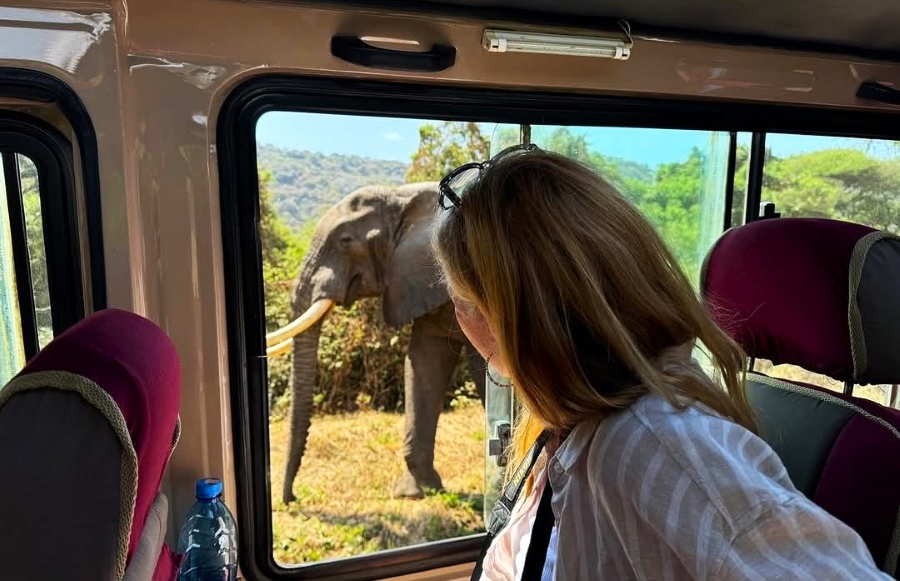Tanzania through the Ministry of Natural Resources and Tourism has assured tourists and investors in the travel industry that the country will not raise park entry fees and related tariffs for the next 12 months.
The decision was further reinforced by the Assistant Conservation Commissioner of Tanzania National Parks Authority (TANAPA), Jully Lyimo who recently held an audience with the tourism industry stakeholders in the United Kingdom (UK).
The Tanzania Wildlife Management Authority (TAWA), through an official letter from the acting Conservation Commissioner, Yussuf Kabange, has also halted new charges until March 2026.
But according to the TANAPA Assistant Conservation Commissioner Lyimo, while the 2026 park fees rates are currently being debated, there would be no changes to current tariffs until March next year at the earliest.
“We want to make sure that all investors and tourists are given ample time to be informed and for preparation of any increase as well as ensuring that everything is done in moderation and reflects market needs,” she explained.
Earlier, the Tanzania Association of Tour Operators wrote to the Minister of Natural Resources and Tourism, Pindi Chana expressing TATO members’ deep concern regarding the recent amendment of non-consumptive wildlife and Antiquities regulations that resulted in significant fee hikes.
In the letter to the Minister, dated on 20th January 2025, the TATO Executive Director, Elirehema Maturo, pointed out that some of these changes entail park fees increase of up to 100 percent.
“And they were introduced without prior notice or consultation, contrary to the best practices of industry engagement that are essential in preventing the shaking the market and disruptive consequences for our sensitive tourism industry,” the TATO executive wrote to the minister in the letter with Reference M.05/6/121.
In response to that, the Minister organized a meeting with the officials from the Tanzania Association of Tour Operators in Dar-es-salaam which was however chaired by the Permanent Secretary in the ministry on the 29th of January 2025.

The tour operators presented their case well and managed to convince the government of their justification to request an advance period notice and grace period of 12 months.
After the meeting, the Permanent Secretary Dr Hassan Abbas agreed to stop the implementation of the regulations.
On the other hand, the Acting conservation commissioner of the Tanzania Wildlife Management Authority, Mlage Yussuf Kabange announced the halting of newly introduced fees for non-consumptive wildlife utilization.
In an official dispatch to tourism stakeholders, commissioner Kabange stated that the decision has been taken by TAWA following concerns raised by tourism stakeholders during the consultative meeting held on 29th January 2025.
“The Ministry has granted a grace period of ten (10) months, effective from 15th February 2025 through 31st December 2025, for the implementation of the newly introduced fees as stipulated in the Wildlife Conservation (Non-Consumptive Wildlife Utilization) (Amendment) Regulations, 2024,” the TAWA commissioner wrote.
“Accordingly, your esteemed office is requested to note that during the granted grace period, the fees outlined in the Wildlife Conservation (Non-Consumptive Wildlife Utilization) Regulations, 2016, shall remain in effect until the end of the specified period,” reads part of the TAWA correspondence.
While most tour operators laud the decision of the government to give them a ten-month grace period, they are also advising that this should be enacted into a law and stakeholders need to convene a meeting to review the regulations.
The Chairperson of the Tanzania Association of Tour Operators, Wilbard Chambulo, points out that the best practice will help boost business.
“Tour operators would like this best practice of giving advance notice before any sensitive decision is made to the sector, should be passed into a law to safeguard the industry and make Tanzania, a predictable destination,” stated Chambulo.
For many years, Tour operators and travel agencies have been lamenting that in Tanzania, many tariffs associated with the industry were always subjected to change without prior notice or grace period.

